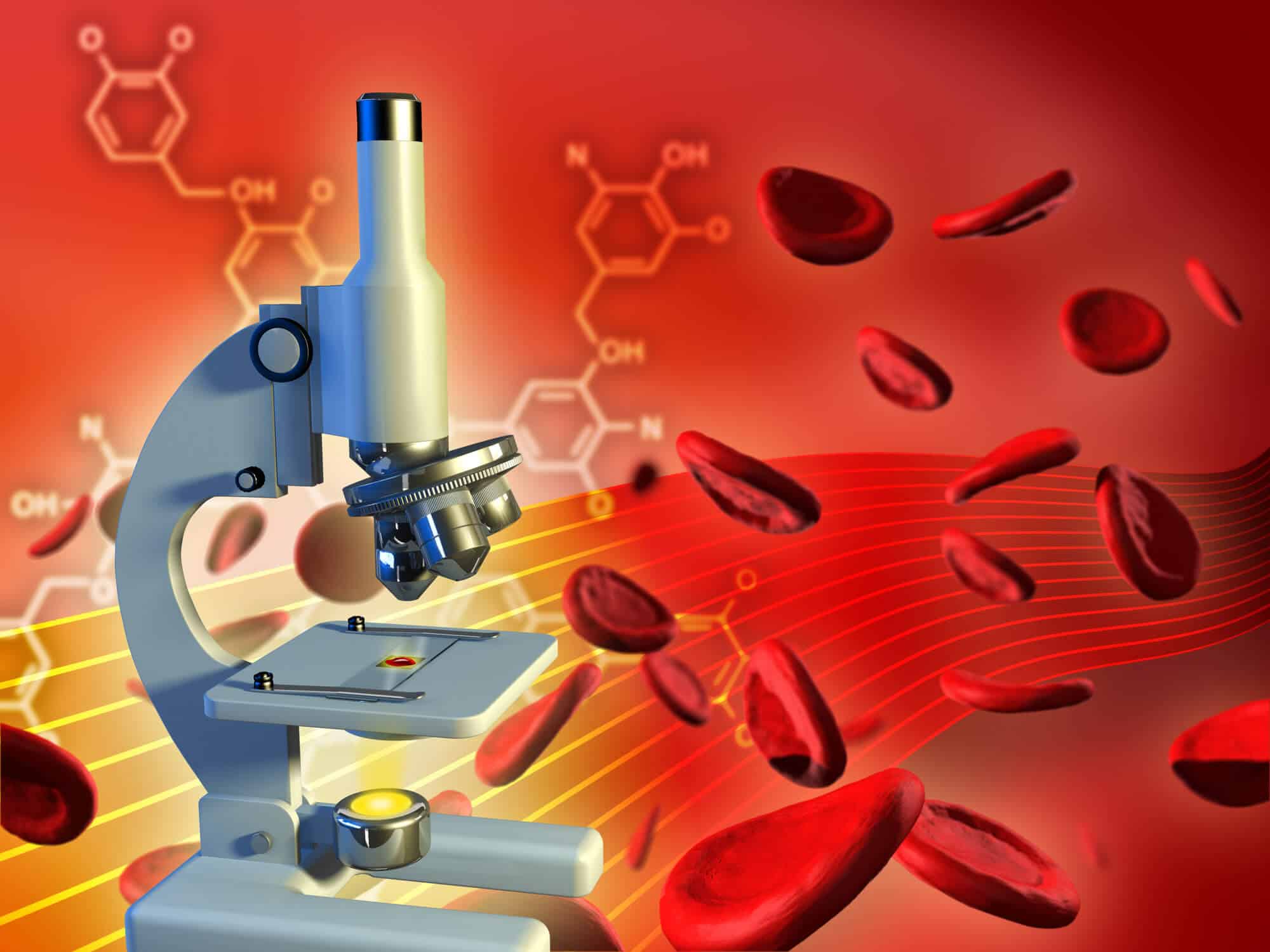Prof. Yuval Ebenstein's laboratory was announced as one of the most advanced in Europe in the research and development of technological solutions for cancer

When the father of Prof. Yuval Ebenstein from the school of chemistry Diagnosed with myeloma (a type of blood cancer), Yuval checked and saw that most of the existing diagnostic and follow-up methods are based on bone marrow biopsies and radiological imaging, which are expensive, unpleasant and risky procedures for patients. He started talking to hematologists and reading professional literature in the field, and saw, to his joy, that the research he was conducting in his laboratory could advance this field significantly.
His acquaintance with Prof. Irit Avivi of Ichilov emphasized even more how big the gap is between what is present and what is desirable in this field. "Prof. Avivi connected me with Dr. Miri Naaman, an expert hematologist, who joined my research laboratory to develop the clinical direction of the project," says Yuval.
In his laboratory, for a decade, a variety of methods have been developed that allow light-emitting molecules to be connected to chemical changes in DNA. These changes have been proven to have excellent predictive ability for various diseases, and especially for various types of cancer, in the early stages of the disease. Based on this technology, Ebenstein established the JaxBio company, which began operating in Israel at the beginning of 2022, with an investment of millions of dollars.
The laboratory specializes in many areas of optical imaging and spectroscopy with an emphasis on single molecule detection and the development of imaging-based techniques. "We are developing new methodologies of spectroscopy and microscopy that combine advanced optics with tools and reagents from the field of nanotechnology. In addition, we have a great interest in developing unique biochemistry for genomic analysis based on chemo-enzymatic reactions," explains Yuval.
Single molecule optical mapping
The research in the laboratory focuses on three areas. The first, single molecule genomics by optical mapping. It is about creating optical barcodes that contain genetic and epigenetic information by labeling long chromosomal DNA molecules with fluorescent markers. Nanofluidic channels are used to stretch the DNA by flow or electric field, and the barcode is displayed directly by imaging a single molecule. "We strive to implement super-resolution techniques, in order to enable the identification of genomic aberrations," says Yuval.
The second field is epigenetic analysis technologies. Epigenetics is one of the most exciting and rapidly growing fields in biology. It links biological signatures with mental or environmental conditions. In the laboratory, new methods are being developed for sequencing, targeted and global analysis of various epigenetic markers. They use these new methods to study epigenetic changes associated with the disease.
The third area is high-throughput single molecule detection, i.e. the development of optical methods and nano-biosensors for the detection of rare analytes and weakly interacting biomolecules. The researchers' emphasis is on sensitive detection and quantification of clinical biomarkers. To achieve this goal, they are developing an optical array based on microlenses that can detect the fluorescence of a single molecule. They are also developing schemes for counting single molecules and developing high-resolution imaging techniques, and special contrast agents that utilize fluorescence and energy transfer for super-resolution (SR) imaging.
Prof. Yuval Ebenstein: Harnessing epigenetics for early detection of cancer
Early detection and accessible to all
Prof. Yuval Ebenstein is one of three researchers who recently won a grant from the "Cancer Mission" of the new European program ("Horizon Europe"), which aims at research and development in the field of dealing with cancer. "Horizon Europe" is the new and largest ever program of the European Union for financing research and innovation.
"We are trying to make it possible to discover a variety of cancers with an accessible blood test. Our blood tests will be able to help choose a treatment or follow-up that is fully adapted to the patient."
In the "Cancer Mission", the State of Israel won first place among all European countries, with a budget of 15 million euros, which was divided among the winning researchers, which makes it the most advanced country in Europe in the research and development of technological solutions for cancer.
"Today it is already clear that early detection of diseases saves lives. Today, many cancers can be treated if they are detected in time," says Yuval, "the main problem is that the cancer is usually detected after the appearance of symptoms, because there are no effective enough screening methods."
"We are trying to make it possible to detect a variety of types of cancer with an accessible blood test, which can be performed once a year or two years and will enable early detection. In addition, medicine as a whole is becoming personalized. Our blood tests will be able to help choose a treatment or follow-up that is fully adapted to the patient."
"In our development there is a unique technological solution that does not require sequencing of the DNA, as is currently required in other existing developments, and therefore it reduces the cost of the test by 50 times. This transforms our test from a product for only the capable to a product that is within the reach of every person, and we hope which will be integrated as a routine follow-up examination. We have amazing preliminary results, and it seems that this has convinced the best scientists in Europe to trust our technology", says Ebenstein.
More of the topic in Hayadan:
- Technology that will lead to the early prediction of cancer through a blood or body fluid test
- A new blood test will detect pancreatic cancer at an early stage
- Without fasting or anesthesia: a non-invasive method for diagnosing inflammatory bowel diseases may replace colonoscopy examinations
- Artificial intelligence in the service of cancer medicine
